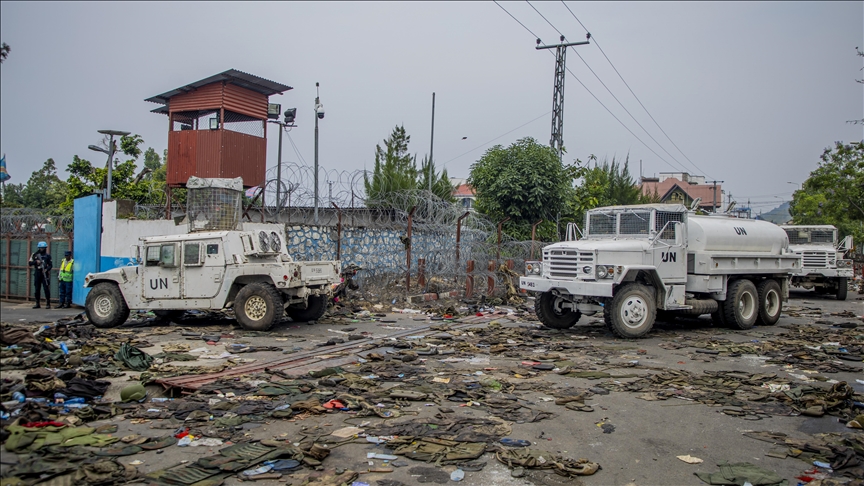Zimbabwe’s President Emmerson Mnangagwa says SADC bloc remains committed to playing its part to promote lasting and sustainable peace in Congo. Aftermath of the clashes in the Democratic Republic of Congo.
Southern African leaders Thursday ended the mandate of Southern African Development Community (SADC) mission in Democratic Republic of Congo amid escalation of violence in the country's east.
The decision was announced at the closure of an extraordinary virtual summit of Heads of State and Government of SADC, held in Harare, the capital of Zimbabwe.
“Summit terminated the mandate of the SAMIDRC and directed the commencement of a phased withdrawal of SAMIDRC troops from DRC,” the leaders said in a communique read out at the end of the summit.
The 16-member state SADC approved the mission to eastern DR Congo in May 2023.
The force includes troops from South Africa, Malawi and Tanzania.
Zimbabwe’s President and SADC chairperson Emmerson Mnangagwa said the “bold decision” to withdraw the regional mission from eastern Congo is on the basis of well-considered factors against the initial mandate of the mission, but the body “will remain seized” with the political and security situation in the country.
The summit noted the increasing humanitarian needs in Congo and called on the international community to provide humanitarian support to the people of Congo.
Earlier, during the opening remarks, the leaders called for an inclusive and comprehensive dialogue process to achieve lasting peace in eastern Democratic Republic of Congo, where fighting has intensified between M23 rebels and government forces.
The leaders underlined that the security and humanitarian situation remain worrisome in eastern Congo, due to the escalation of violence.
“We remain cognizant of the fact that repercussions of instability extend beyond DRC borders, affecting the broader region at large. Emphasis must be on collaborative strategies to improve peace and security in DRC,” Mnangagwa said while opening the summit, which convened to discuss the escalating security situation in eastern Congo.
“As SADC we reaffirm our commitment to play our part to promote lasting and sustainable peace. In this regard, an inclusive and comprehensive dialogue process is essential to strengthen security mechanisms that safeguard the human rights and dignity of affected communities,” he added.
The meeting came after Angola announced that peace talks between the Congolese government and M23 rebel group brokered by President Joao Lourenco, the African Union peace mediator for the conflict in Congo, are scheduled to take place on March 18 in the capital Luanda.
The rebel group has intensified its offensive in eastern Congo since December, capturing provincial capitals of Goma and Bukavu.
Last week, the rebels captured Nyabiondo, located 110 kilometers (68 miles) northwest of Goma in North Kivu province, after days of fierce fighting with government forces and the pro-government militia, Wazalendo.
Local media reported that the rebels on Wednesday seized the town of Kashebere, in North Kivu province.
Congo and Western countries accuse neighbouring Rwanda of backing the M23 rebels. Rwanda has denied the allegations. By James Tasamba, Anadolu News Agency






